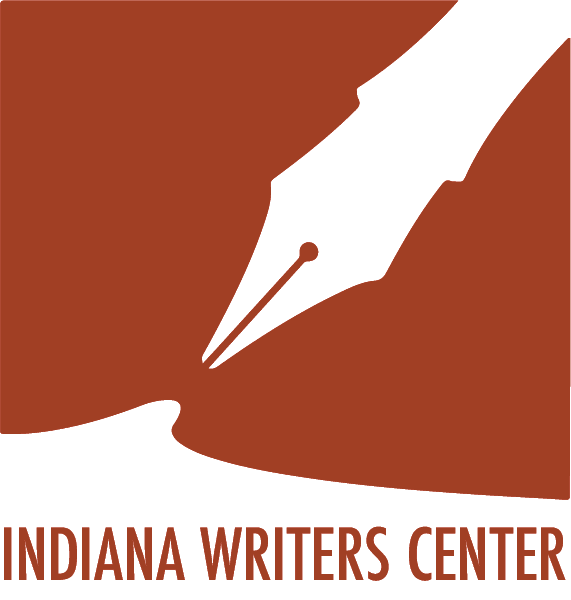The “New Words” poetry series gives poets of all levels a new outlook on their creative lives and ways to use their writing to make an impact on their surroundings. Its creators, Kelsey Johnson Lyons, Programs Manager of the Indiana Writers Center, and Chantel Massey, founder of UnLearn Arts, are both long-time poets and performers fully immersed in the literary fabric of Indianapolis. Together they’ve designed this three-part program, sponsored by the Poetry Foundation and Marian University, to empower poets in our community.
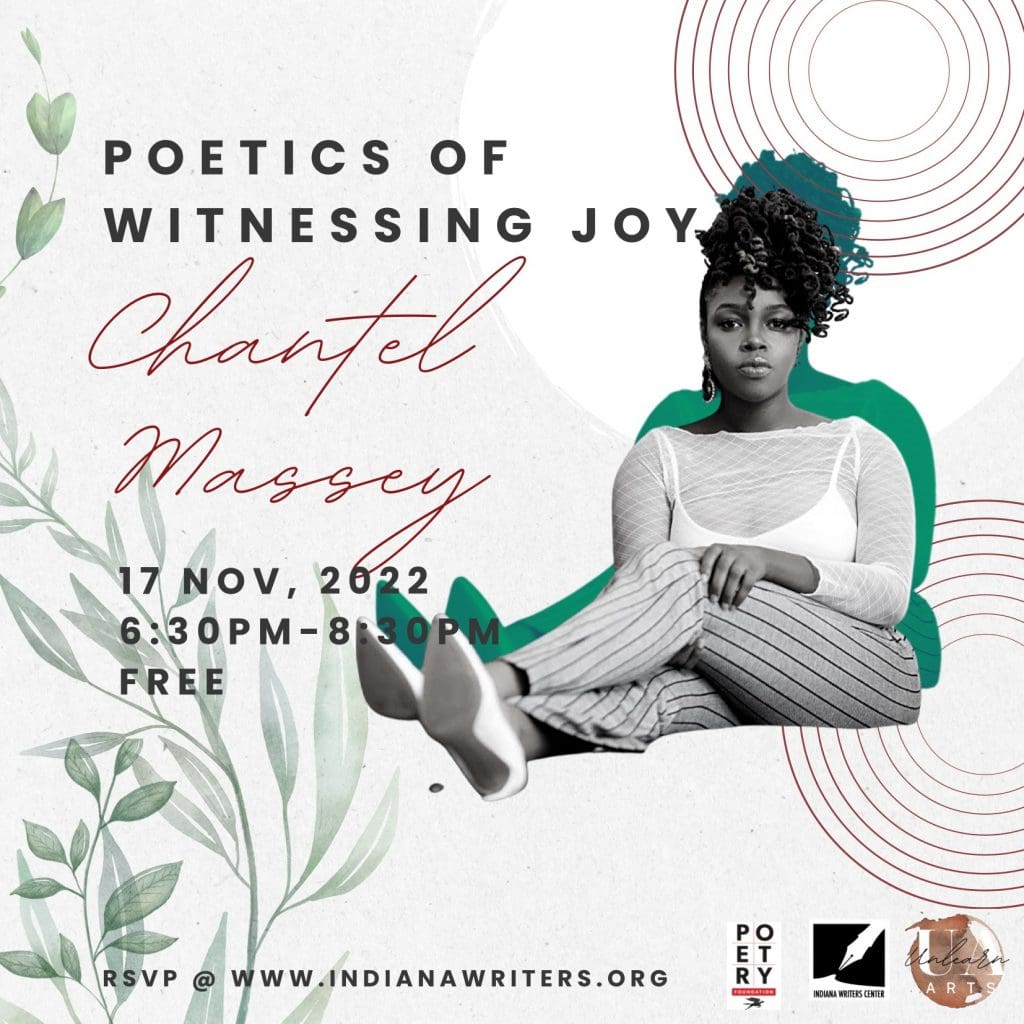
It’s easy to look at our lives and the world around us and feel hopeless, like there’s no way for us to make a difference. This series aims to change that view, however, and emphasizes the power of words to bring about change within ourselves and in our communities—and perhaps on an even larger scale, as Massey observes, “The poets before us have helped to change the tide and to sway the culture.”
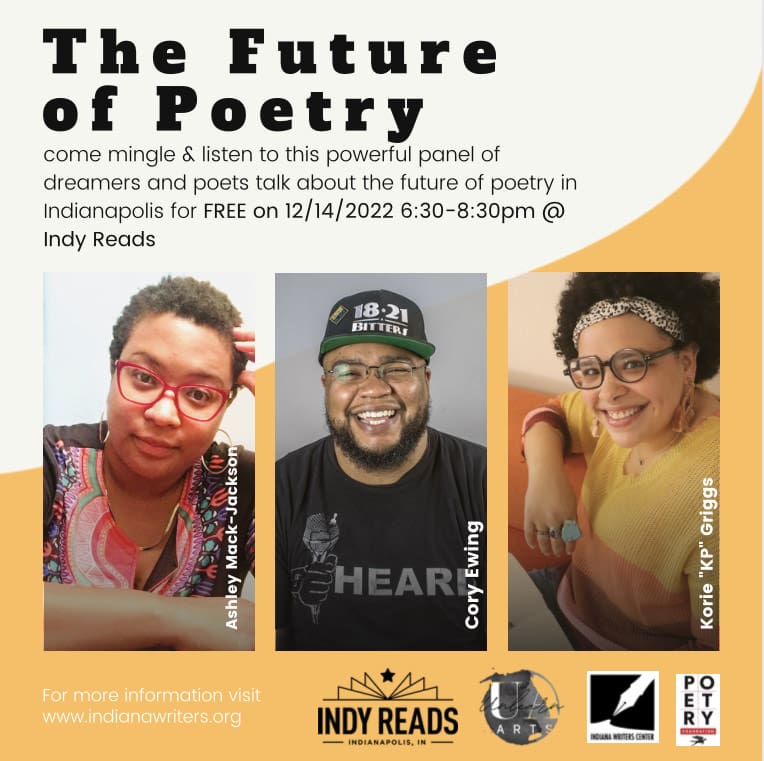
In fact, the ongoing conversation of these workshops is borne from poet Lucille Clifton’s quote, “We need new words for what this is. . .We need the flutter that can save us, something that will swirl across the face of what we have become and bring us grace.” This program consists of three workshops: “Dreaming in Color” with Januarie York; “The Poetics of Witnessing Joy” with Chantel Massey; and Devon Ginn’s “Sound Bowls and Poetry.” It culminates in a final panel, “The Future of Poetry” with Ashley Mack-Johnson, Cory Ewing, and Korie “KP” Griggs.
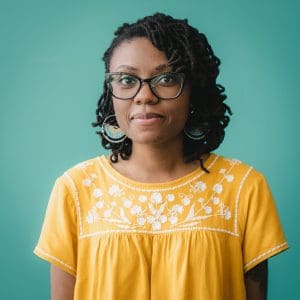
Johnson Lyons describes these instructors and speakers as visionaries, “artists who are striving to dream up a new world through their art.” Event attendees have the opportunity to meet and mingle with established poets, learning about the craft of poetry. They will leave with new ideas to ponder and strategies for translating their words to the page.
The richness of poetry centers us, shows us our power, and helps us deliver that power to the rest of the world. It begins with using our words to navigate our emotions and bring us through difficult times. “Poetry doesn’t necessarily have to be a public spectacle,” says Johnson Lyons. “There’s poetry for consumption and then there’s poetry that’s entirely personal.”
Yes, poetry is allowed to be ugly, unfiltered; raw. By using words to articulate our thoughts and process our emotions, we give ourselves clarity and a renewed perspective, and the chance to lift each other up. Massey explains that poetry pins down those things that eat at us or weigh us down; it names them, which frees us and provides an avenue towards peace, healing, and even joy. The world opens to us when we approach it with curiosity and hope; our souls open when we use our words to express what we’ve found. And our communities improve every time we share the discoveries we’ve made.
There’s also a pathway to healing found in engaging with our communities and fellow writers. How can we approach our problems—the personal and the collective—in a creative, effective way? Looking on the world with our new, poet eyes, we ask ourselves the same question Langston Hughes did in his poem, “I Dream a World.” What kind of world do we want to create?
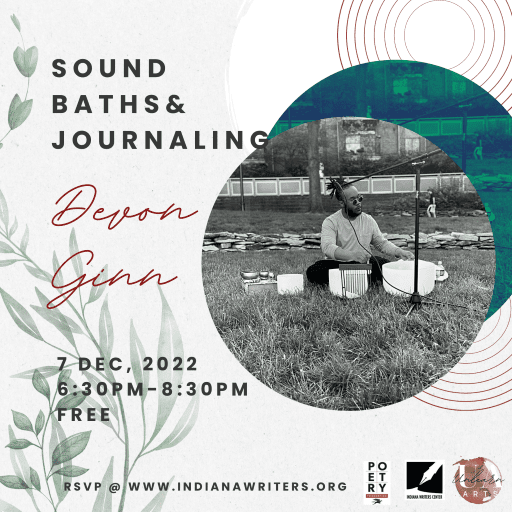
Massey is excited about the ways that a program like this “highlights the many voices that make up our vibrant literary arts community.” That’s exactly what we’ve been seeing in these workshops so far: a showcase of the rich writing community in Indy. “IWC has been a vital part of the Indy writing scene for decades,” Johnson Lyons says, and “UnLearn Arts has filled a huge need for writing classes that feature Black wmn and femme poets/instructors in the Indianapolis area.”
Knowing that there are others out there who are like us, pounding their hearts out on the keyboard or in the scribbles in our notebooks, is invaluable, especially when we feel so alone in what is inevitably a solitary practice. But we can come together for collaboration and encouragement, and to lead one another to see the power of our words.
The IWC and UnLearn Arts share the goal of a continued relationship and future collaborations to serve the greater writing community. They hope for more programs like this one, maybe even in 2023. Until then, keep dreaming—and keep writing!
